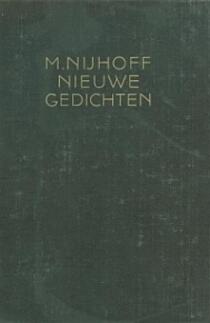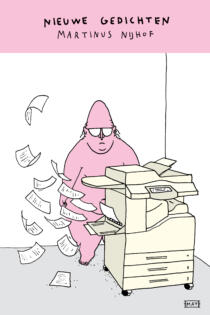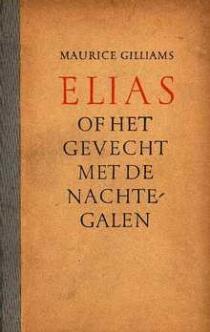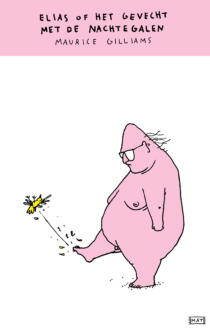Ik heb een man gezien. Hij heeft geen naam.
Geef hem ons aller vóórnaam bij elkaar.
Hij is de zoon van een vrouw en een vader.
Zodra de rode zon is opgegaan
gaat hij de stad in. Hij komt langs mijn raam.
De avond blauwt, hij komt er weer vandaan.
Hij werkt op een kantoor, heet daar Awater.
(I saw a man. He has no name.
Give him all our first names in one.
He is the son of a woman and a father.
When the red sun rises
he goes into town. He passes by my window.
Dusk falls, he passes by again.
He works in an office, is called Awater there.)
This man becomes the protagonist in the epic poem that bears his name and whose form is reminiscent of the eleventh-century Chanson de Roland. Kees Verheul writes in the afterword to his anthology of Joseph Brodsky’s poetry (The Hawk’s cry in Autumn) of the great impression that Nijhoff’s Awater had made on the Russian Nobel Prize winner. Verheul adds: “An experienced Nijhoff reader will no doubt also be surprised by striking echoes between the poems The Hawk’s cry in Autumn (Brodsky) and The Song of the Foolish Bees (Nijhoff): at the heart of both is a rising up and up into the sky until the winged creature freezes and descends to earth in the form of snow.”
The Song of the Foolish Bees is from New Poems and marks a clear break for Nijhoff from his earlier views on poetry. In the 1930s, Adriaan Roland Holst was still regarded as the “great poet”, the “poeta vates”, yearning for an otherworldly “other country”. In comparison to him, Nijhoff considered himself to be a “poeta minor”, a poet who lacked wings. But in New Poems, a collection published during the world economic crisis that led to Hitler’s rise to power in Germany, Nijhoff demonstrated a new, self-aware and modernist style. Far from thoughts of the upper or other worlds, he focused on earthly reality.
Read The Feather to see how this is manifested, or the sonnet The Birds, with the surprising line “Heaven asks for the crumbs of the land” (a reversal of the biblical story in Exodus, in which manna descends from heaven). Finally, reread Awater, an admittedly not unambiguous (“Read it, it doesn’t say what it says…”) love song to modernity. This turning to the earthly is not without its problems, as can be seen in Impasse. The poet receives no answer to the question he poses to his beloved: “What do you want me to write about?”
Nijhoff’s modernism remains most closely aligned with the international New Objectivity movement. This movement originated from architecture. In literature, it is characterised by a preference for everyday subjects and a consciously spare style. In “The Ivy”, for example, Nijhoff uses the rhythm of spoken language:
Als ik langs ’t ziekenhuis waar zij verpleegd werd loop,
het is niet omdat ik op haar opstanding hoop,
het is omdat (…).
(When I walk past the hospital where she was nursed,
It is not in the hope of her resurrection,
It is because (…).)
His sonnet The Mother the Woman starts with the most prosaic lines in all of Dutch poetry, about the poet going to see a bridge. The poem does end with a vision, about his mother singing psalms. Some poets have a street named after them when they die. Nijhoff got a bridge. Naturally, it is located in (Zalt)Bommel.






